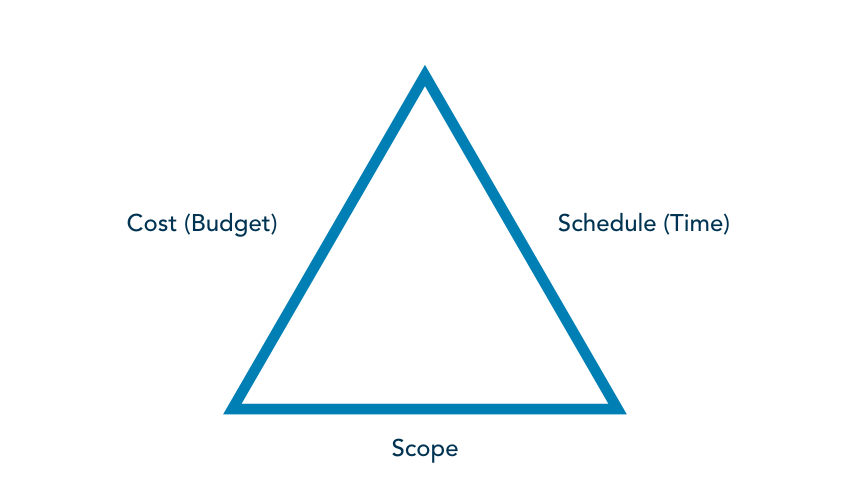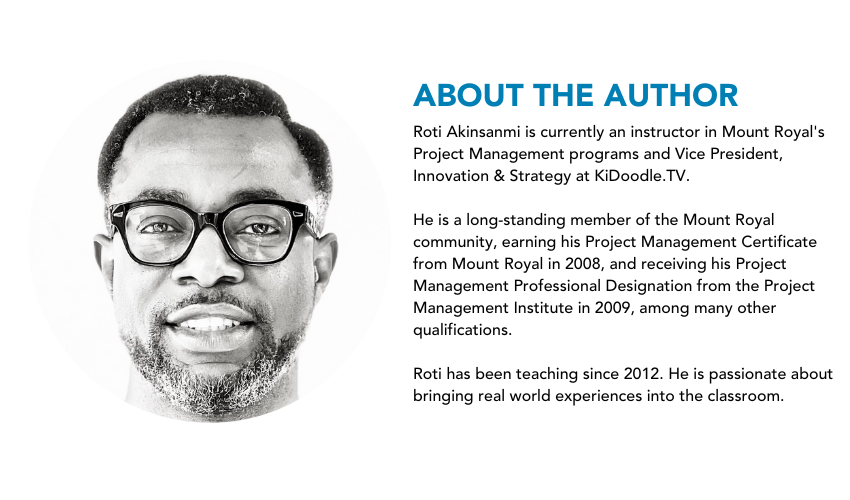Five tips to use for your next project
By Roti Akisanmi, Instructor in Mount Royal's Project Management program
Use these five tips to guide your next project plan
Projects are powerful. They bring to life a world that doesn’t yet exist! Sadly, the majority of projects fail. Here are some tips to help improve your chances of success:
1: Value
“There is nothing quite so useless as doing with great efficiency something that should not be done at all.”
- Peter Drucker.
The first question we must ask is: Why is this important and why now? The answer to this question should define the value of the project and the urgency it deserves. If the value is questionable, it may be expedient to pause and revisit our why. This takes courage and is sometimes the right thing to do.
2: People
Projects are done by people for the benefit of people. These people are referred to as "stakeholders". To identify the stakeholders, we ask the following questions:
- Who will benefit from the project outcome? Users
- Who will provide the resources? Sponsor
- Who will do the work? Team
Humans are inherently social. Leading people and managing the relationships are the responsibilities of the project manager. A project should not start without assigning a project manager.
3: Constraints
Rarely do organizations have unlimited resources to complete a project. Projects are typically bound (constrained) by three elements referred to as the “triple constraints”.
- Scope: what is the work that needs to be done?
- Schedule (Time): how much time is available to complete the work?
- Cost (Budget): how much money is available for the project?

Delivering a project within the budget after the deadline may not be of value. Neither is exhausting the budget before work is complete. Identify the constraints early to surface the realities of the project.
4: Risks
“…no human being can possibly predict the future, let alone control it.”
- Peter Drucker.
As we plan and do the work of the project, there will be surprises. Often, the best surprise is no surprise, so we can ask the question - what could harm or hurt the project? The answer to this question is: risks. Identifying risks early and having a plan of response will increase your chances of successful project completion.
5: Learning
There is always a better way. Set aside time from the beginning on a regular basis to identify learnings that can be applied through the project. Don’t wait until the end of the project to learn lessons.

Courses for Mount Royal's Project Management Extension Certificate are currently open for registration! Visit the program page to learn more and register.
